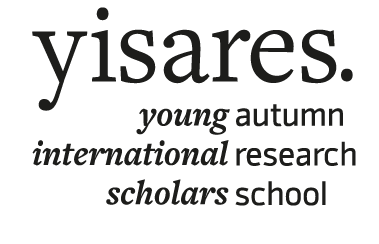Faculty Members
Prof. Payal Arora
Payal Arora is a Professor of Inclusive AI Cultures at Utrecht University and Co-founder of FemLab, a feminist futures of work initiative. She is a digital anthropologist and an author, speaker and consultant. Her expertise draws from two decades of user experiences among low-income communities worldwide to shape inclusive designs and policies. She is the author of a number of award-winning books including the ‘Leisure Commons’ and more recently the “The Next Billion Users” with Harvard Press.
Prof. Makulika Banerjee
Mukulika Banerjee is Professor of Anthropology at the London School of Economics and Political Science. She was also the inaugural director of its South Asia Centre from 2015 to 2020. Her longstanding academic work lies at the intersection of social anthropology, politics, and history. She has published widely on South Asia. Among her publications are Why India Votes (2014) and Cultivating Democracy, Politics and Citizenship in Agrarian India (2021).
Prof. Zsolt Enyedi
Zsolt Enyedi is Professor at the Democracy Institute at CEU, Budapest. The focus of his research interests is on party politics, comparative government, church and state relations, and political psychology (especially authoritarianism, prejudices and political tolerance). Zsolt Enyedi was the 2003 recipient of the Rudolf Wildenmann Prize and the 2004 winner of the Bibó Award. His most recent book, Party System Closure, co-authored with Fernando Casal Bertoa, was published by Oxford University Press in 2021.
Dr. Ulrike Flader
Ulrike Flader is Senior Researcher in the RG Soft Authoritarianisms at the University of Bremen and Lecturer at the Department of Anthropology and Cultural Research. She holds a PhD from the University of Manchester and has worked in and on Turkey for many years. Her research is located in the field of anthropology of the state. Her current research examines the ways in which soft authoritarian governmental practices dismantle opposition. n.
Prof. Eva Fodor
Eva Fodor (CEU) is Professor of Gender Studies at the Central European University. Trained as a sociologist, her work lies in the field of comparative social inequalities with a specific interest in the shaping, reshaping and negotiation of gender differences in the labor market. Among her most recent publications is the monograph “The Gender Regime of Anti-Liberal Hungary” (2022). Further current research engages with the transformation of the labor market during and following the pandemic.
Dr. Nurhak Polat
Nurhak Polat is an Associated Fellow of the RG Soft Authoritarianisms and Senior Researcher at the University of Bremen. She conducted her doctoral research on reproductive technologies, fertility economies, activism in Turkey at the European Ethnology Department of the Humboldt University in Berlin. She is currently working on her post-doctoral research focusing on the intersections of authoritarianisms, digital technologies, and data politics.
Dr. Lipin Ram
Lipin Ram is Postdoc Researcher in the RG Soft Authoritarianisms at the University of Bremen. He holds a PhD from the Graduate Institute, Geneva. His dissertation grapples with the problem of theorizing democracy from empirical premises of democratic politics that are norm-deviating, characterized by troubling contradictions, and display unconventional trajectories.
Assist. Prof. Seda Saluk
Seda Saluk is an Assistant Professor of Women's and Gender Studies at the University of Michigan. She is a feminist anthropologist working at the intersection of medical anthropology, science and technology studies, and Middle East studies. Her research broadly focuses on the politics and ethics of medical technologies through the lens of gender and race/ethnicity.
Prof.Dr. Shalini Randeria
Shalini Randeria is rector and president of the Central European University in Vienna and Professor of Social Anthropology and Sociology. She also holds the Excellence Chair at the University of Bremen, where she leads a research group on “Soft Authoritarianisms”. Shalini Randeria is regarded as one of the most important voices of postcolonial perspectives in the cultural and social sciences in German-speaking countries. She has published numerous books and articles in the fields of legal and political anthropology, postcolonial studies, on the state and public order, population policies and land resources, globalization and development, as well as on civil society and social movements.
Prof. Joachim Scharloth
Joachim Scharloth is Professor of German Sudies at Waseda University, Tokyo. He studies among other topics the function of Invective language and Hate Speech for the building of communities and in struggles for hegemony in the German New Right.
Hagen Steinhauer
Hagen Steinhauer is Doctoral Researcher at the RG Soft Authoritarianisms at the University of Bremen. As a linguist, he is interested in discursive practices used in the process of hollowing out democratic norms and values. In his thesis, he focuses on soft authoritarian identity politics in France.
Assist. Prof. Tyler Zoanni
Tyler Zoanni is Assistant Professor of Anthropology at the University of Bremen. His research focuses on politics, health, religion, kinship, aesthetics, personhood, and subjectivity, grounded in fieldwork in East/Central and Indian Ocean Africa. His work appears in edited collections in Cambridge Anthropology and Somatosphere and other articles in Cultural Anthropology, Medical Anthropology, Ethos, Current History, and Anthropological Quarterly.
